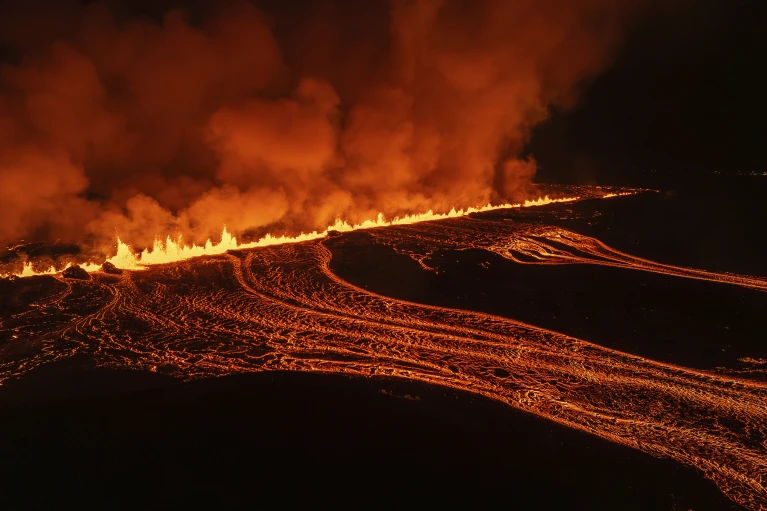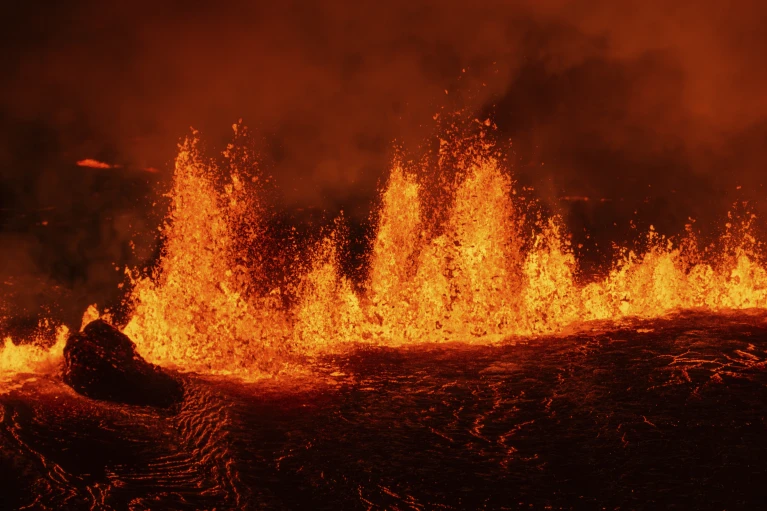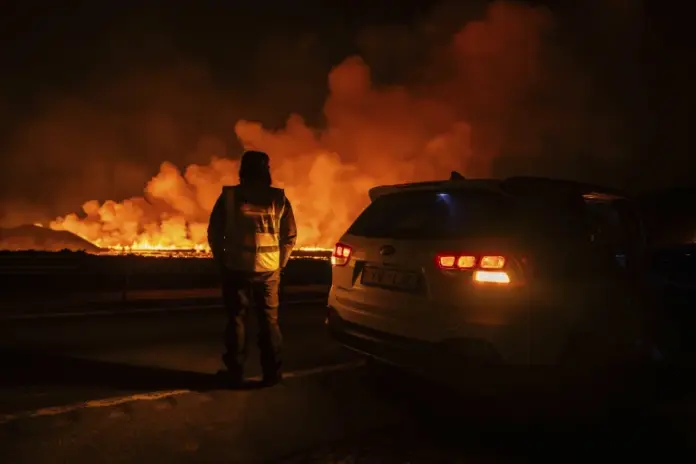A renewed display of volcanic activity
A volcano on Iceland’s Reykjanes Peninsula, dormant for eight centuries before its reawakening, erupted for the seventh time since December. The latest eruption began at 11:14 p.m. Wednesday, creating a 3-kilometer-long fissure and sending molten lava flowing toward the Blue Lagoon spa, a popular tourist destination.
Smaller but still significant

Iceland’s meteorological office reported that the current eruption is smaller than those in August and May. Geophysics professor Magnús Tumi Guðmundsson described the activity as less intense overall but noted that eruptions in this area tend to subside within days.
Safety measures and evacuations
The Civil Protection Agency issued alerts, evacuating around 50 homes and guests at the Blue Lagoon. Lava reached the spa’s parking lot, consuming a service building and threatening a hot water pipeline, which was designed to withstand such flows. Authorities also warned of gas emissions in the nearby town of Grindavík, which has faced repeated disruptions due to the volcano’s activity.
Impacts on Grindavík
Grindavík, located about 50 kilometers southwest of Reykjavik, has been heavily affected by the repeated eruptions. With a pre-eruption population of 3,800, many residents have had to relocate for safety. Despite the lava flow, Guðmundsson assured that the town is not currently in danger, and the fissure is unlikely to extend further.
Iceland’s volcanic landscape

Situated above a volcanic hot spot, Iceland experiences eruptions approximately every four to five years. The 2010 eruption of Eyjafjallajökull remains one of the most disruptive in recent history, halting trans-Atlantic air travel for months due to ash clouds.
A balancing act of natural beauty and risk
As the Reykjanes Peninsula’s volcanic activity continues, Iceland faces the challenge of balancing its natural wonders with the safety and well-being of its residents and visitors. The Blue Lagoon and surrounding areas remain under close monitoring as authorities manage the ongoing eruption.


